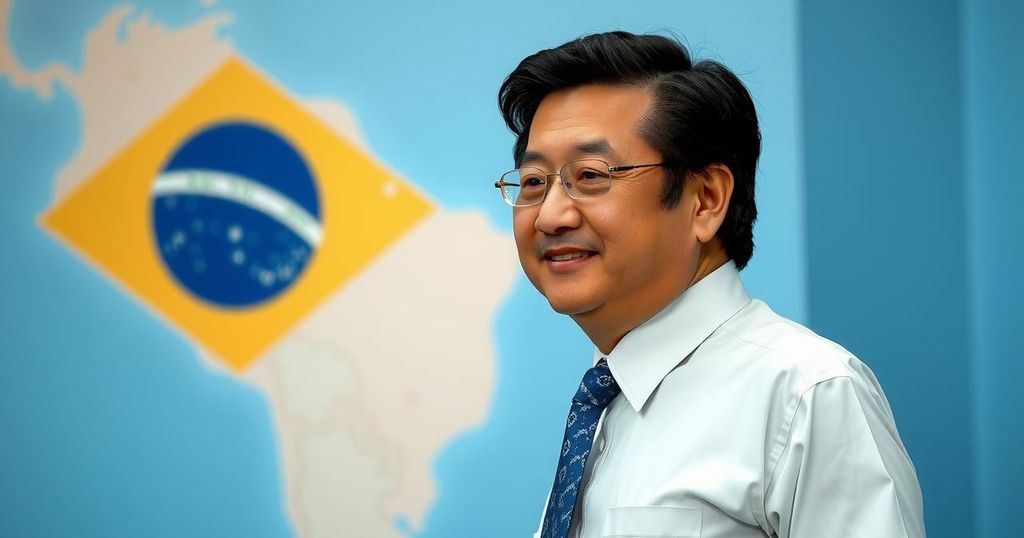Global news
ARGENTINA, BRASALIA, BRAZIL, CARACAS, GEOPOLITICS, INDUSTRIAL COMPETITIVENESS, INTERNATIONAL RELATIONS, LU, LULA, MILEI, NATURAL GAS SUPPLY, NICOLA, NICOLÃ ¡, NORTH AMERICA, PARANA, PARANÃ ¡ RIVER, PETROBRAS, SOUTH AMERICA, TRADE RELATIONS, UNITED STATES, VENEZUELA
Isaac Bennett
0 Comments
Friction and Pragmatism Define Argentina-Brazil Relations in Milei’s First Year
In President Milei’s first year, tensions with Brazil have surfaced alongside pragmatic efforts to maintain trade relations, as illustrated by diplomatic cooperation in the energy sector and Brazil’s support in international representation. While friction was evident at the G20 summit, economic ties remain critical, with Brazil accounting for significant trade volumes with Argentina. Milei’s recent diplomatic choices, including associations with former President Bolsonaro, further complicate these interactions.
The relationship between Argentina and Brazil during President Milei’s inaugural year has exhibited significant tensions, notably visible through the interactions between Presidents Milei and Lula. Their meeting at the G20 summit in Rio de Janeiro showcased palpable discord, intensified by Milei’s provocative suggestion of potentially severing diplomatic ties with Brazil. However, despite these frictions, diplomatic channels remained active, with officials from both nations striving to uphold trade relations that are vital to Argentina’s economy.
Brazil represents Argentina’s primary trading partner, playing a crucial role in its economic landscape. Approximately 17% of Argentina’s exports and 24% of its imports originate from Brazil, signifying a deeply intertwined economic relationship. Despite a steady decline in bilateral trade since 2014, revitalizing these economic ties has been a priority for President Lula during his third term, amidst the backdrop of Argentina’s stringent fiscal measures.
The energy sector offers a stark illustration of pragmatic collaboration between the two nations. A notable episode occurred in May when a Petrobras gas tanker altered its route to dock in the Paraná River, following effective diplomatic negotiations that averted an energy crisis in Argentina. Furthermore, Brazil assumed the responsibility of overseeing Argentina’s diplomatic representation in Caracas, Venezuela, after a diplomatic expulsion left Milei’s team without a presence in the region.
Milei’s political maneuvers have generated trepidation among some of his allies within Argentina, particularly following his recent participation in a public event alongside former Brazilian President Jair Bolsonaro. Additionally, the political climate is complicated by the presence of numerous fugitives from Brazil’s January 8 events seeking refuge in Argentina; whereas the Argentine government has assured noninterference, the ultimate decision regarding their status lies with President Milei.
Throughout his first year in office, President Milei’s approach to foreign relations, especially concerning Brazil, has been marked by both friction and pragmatism. This duality reflects the complex historical ties and economic dependencies between Argentina and Brazil. With Brazil being Argentina’s largest trading partner, the diplomatic dynamics between the two nations are pivotal to Argentina’s economic recovery and overall political landscape. The challenges presented by Milei’s ultraliberal policies juxtapose the continuity of trade engagement initiated by his predecessor, underlining the ongoing relevance of bilateral cooperation despite ideological differences.
In summary, the relationship between Argentina and Brazil during President Milei’s first year has been characterized by significant tensions, particularly evident in diplomatic interactions. However, underlying efforts to maintain and enhance trade relations illustrate a pragmatic approach to governance amidst ideological differences. The complexities of historical ties, economic interdependence, and diplomatic responsibilities continue to guide the relationships between the two nations, highlighting the potential for cooperation even in politically charged environments. President Milei’s actions will determine the future trajectory of this crucial partnership.
Original Source: www1.folha.uol.com.br




Post Comment